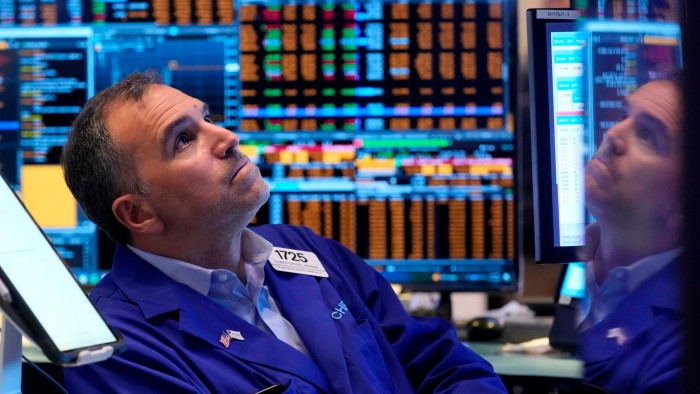Unlock the White House Watch newsletter for free
Your guide to what the 2024 US election means for Washington and the world
US Treasuries have recovered all the ground lost in a dramatic sell-off sparked by Donald Trump’s election victory, after Federal Reserve chair Jay Powell said it was too early to judge whether the incoming president’s policies would change the interest rate outlook.
The yield on the 10-year Treasury declined 0.05 percentage points to reach 4.29 per cent in London morning trading on Friday, almost exactly where it closed on November 5, the day before the election result sent a “Trump trade” tearing across global financial markets.
Investors betting that Trump’s plans for tariffs and tax cuts would fuel growth and inflation piled into stocks and dumped bonds on Wednesday, betting that the path of interest rates would need to be higher than previously thought. The 10-year Treasury yield jumped to 4.48 per cent, a four-month high, as the results of the election came in.
But traders have unwound some of those bets over the subsequent two days, with the dollar also giving up part of its gains.
“I don’t buy that Trump will cause a wave of inflation,” said Matthew Morgan, head of fixed income at Jupiter Asset Management. He pointed to the cooling jobs market as evidence for the manager’s view that market expectations of higher inflation had been overdone.
Some investors viewed the initial investor reaction to Trump’s victory as a “knee-jerk” response to his campaign rhetoric on tariffs, questioning whether these represent an initial negotiating position and whether broad-based tariffs could get through Congress.
The reversal in mood was encouraged by the Fed’s move on Thursday to cut its benchmark interest rate, as expected, by a quarter-point. Powell said the central bank would not “speculate” on the substance of the election victor’s policies and their effects.
He was also emphatic that he would not step down early, if asked to do so. Investors had worried that, if elected, Trump might use his position to frustrate the Fed’s independence and ability to put up interest rates.
“Ultimately, as Powell said last night, anyone who’s job it is to predict the economy will tell you how hard it is,” said William Vaughan, an associate portfolio manager at Brandywine Global Investment Management. “It is important to focus on announced policies rather than pre-election rhetoric, which can often be extreme to win an election.”
Traders in swap markets are putting an around 90 per cent probability that the Fed will cut rates by another quarter point at its next meeting in December.
Read the full article here




